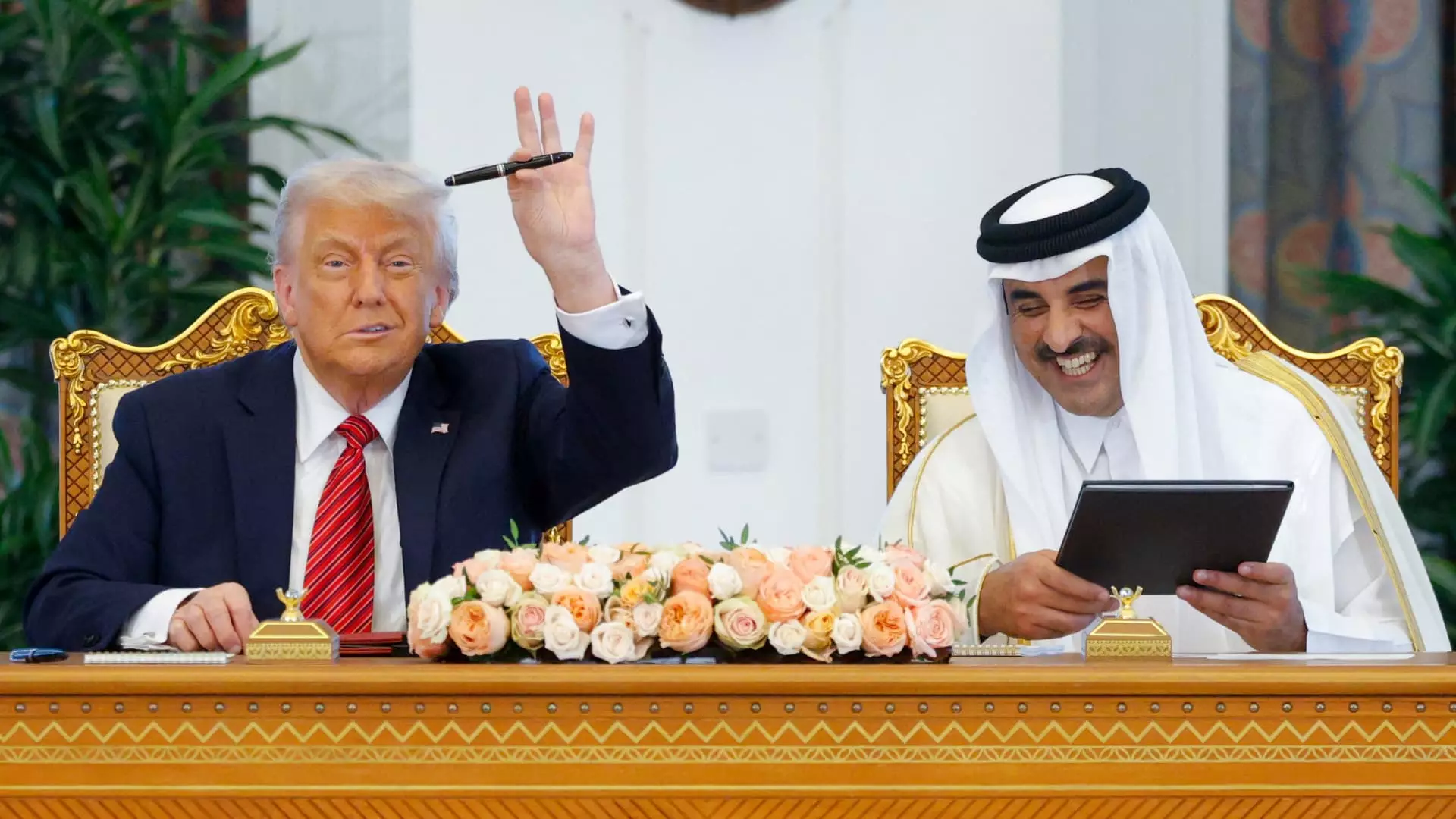In an era when the integrity of political office is under constant scrutiny, the allegation that Qatar offered a Boeing 747 jet to former U.S. President Donald Trump raises profound questions about the moral and ethical boundaries of diplomatic relations. Sheikh Mohammed bin Abdulrahman al-Thani’s denial of catering to the whims of an unpredictable administration highlights the complexities and potential pitfalls of international diplomacy. Rather than a mere exchange between allies, this incident exemplifies an unsettling trend in which foreign gifts could morph into instruments of influence, compromising the very fabric of democratic principles that govern American governance.
Symbolism Over Substance
To the casual observer, the narrative surrounding the jet might seem benign or even flattering—an extravagant gift bestowed by a small but wealthy nation to one of the most powerful leaders in the world. However, this is a dangerous simplification. When we view such gestures through the lens of the Foreign Emoluments Clause of the U.S. Constitution, we confront a stark reality: what may appear as routine diplomacy could easily be perceived as an invitation to corruption. Al-Thani aptly described the transaction as “transparent,” yet one cannot ignore that transparency is not simply a matter of documentation; it’s about assurance that no underlying motives tarnish the intentions of both parties.
The overwhelming majority of nations do not extend such ostentatious gifts, leading one to wonder if Qatar is indeed attempting to secure leverage over U.S. policies and actions. If every nation decided that showering gifts was an acceptable means of fostering relations, we risk a world where political decisions could become contingent upon the size and value of the gifts received.
Political Exploitation and Consequences
Democratic leaders have appropriately criticized the situation. This isn’t merely a tempest in a teapot but a contestation of principles that should guide our political landscape. The accusations against Trump are not about the jet itself; they resonate with longstanding concerns regarding the conflation of personal and national interests. By failing to decisively reject such gifts, there is a looming fear that political leaders might subvert their responsibilities to the American people in favor of catering to foreign benefactors.
The notion that a country may leverage a gift for influence—a “quid pro quo”—is hardly new. The widespread concerns voiced by lawmakers reflect an urgency to re-evaluate the norms of diplomacy in the 21st century. Acceptance of lavish gifts blurs the lines between goodwill and patronage, and as such presents a worrying scenario in which foreign states might vie for preferential treatment in American policymaking.
The Impact of Public Perception
The fallout from the jet proposal exemplifies the perceived erosion of ethical governance in American politics. With every new twist in this saga, the public’s trust in their elected officials diminishes. Why would an average citizen feel secure in their governmental institutions when high-profile figures appear to engage in transactions that could be deemed unethical at best, and corrupt at worst? The fear that democracy could morph into a pay-to-play environment is palpable and warrants immediate discourse.
As members of Congress summon the courage to challenge the status quo, it’s essential to recognize the power of public accountability. This incident serves as a critical reminder that elected officials must consciously disentangle governance from transactional diplomacy and reassess their engagement methods with foreign entities. A call for enhanced oversight and transparency in such international dealings is not merely desired but necessary to uphold the integrity of the nation’s highest office.
The Road Ahead: A Call for Reflection
Ultimately, the conversation surrounding Qatar’s gift of a Boeing 747 is not merely about one aircraft but rather an imperative reflection on how foreign relations are conducted. It compels us to engage deeper with the very frameworks that govern international gifts and influence, demanding greater vigilance from both lawmakers and citizens. As the public remains alert to potential repercussions, the responsibility lies not only with those at the helm of power but equally with the electorate to advocate for the restoration of robust ethical standards in foreign relations. The stakes are high, and complacency poses a threat that few can afford to ignore.


Leave a Reply